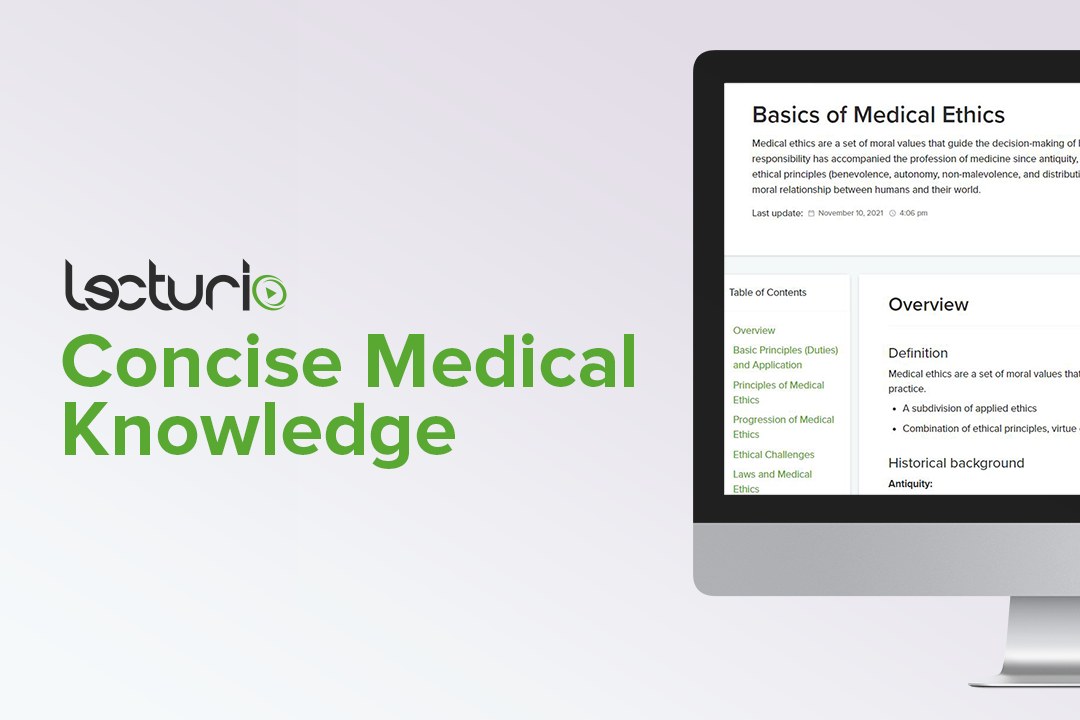Playlist
Show Playlist
Hide Playlist
Casuistry
00:01 Our 4th approach to ethics is something called casuistry. 00:05 So this is saying that cases are the way to think about how to approach ethical dilemmas. 00:11 It is searched that the priority of our practice and our experience trump the theories. 00:17 So, over the span of our career, you know, a physician, a nurse will see many patients, many cases, and that practice of taking care of each individual patient we sort of learn by doing of how to approach a case. 00:32 And that is what casuistry is all about. So it's reasoning by analogy. 00:37 So it's taking that previous case, how we handled it, how others might have handled it, and saying "Well, is this an analogous situation to what I'm confronting now in taking care of the patient performing?" It's similar to a case law. So in case law, a judge will render an opinion based on president cases to look how past judges have made decisions and say how does the case before them compare or contrast to that previous case and can they use president to then make a decision. Now there are caveats to that. 01:11 You know, you don't want to take a case from 100 years ago and how it was decided and knowing that there might have been biases and prejudice and how those decisions were reached and then trying to apply it to your current situation. 01:22 So, again, it's a comparison and contrasting to those past cases. 01:27 It's not saying that those past cases are always going to be the way to handle a situation. 01:33 And so for each specific case that you're looking at, you're wanting to see what are the relevant parallels and are there, you know, comparisons that can be made or contrasting viewpoints that can be shown from the previous case, say "Can we reach consensus in this case?" So take for example that middle-aged woman with the anoxic brain injury is in a persistent vegetative state. 01:56 There are famous cases of women in persistent vegetative state like in the United States. 02:01 In the Evolution of Bioethics, there was Karen Ann Quinlan, Nancy Cruzan, Terry Schiavo, these women had conditions that put them in a persistent vegetative state and their family members need to make decisions about how to handle those. 02:16 So you could take those similar cases and say "Okay, here's the condition. 02:21 This is what our current patient is dealing with and her family members need to make decisions. 02:27 How are they similar or dissimilar could we figure out what to do in this particular case. 02:33 And there may be general principles that are developed over time as you would handle more and more cases. 02:38 So, these use as guidelines per se of "Can we, you know, reason by analogy to them develop these general approaches to a case?" But it also recognizes that principles are never final. 02:54 You have to look at the particular case, avoid any biases or prejudices in rendering an opinion about this case, and use casuistry to sort of figure out a course of action. 03:07 So that's our 4th approach to medical ethics, casuistry. 03:12 The idea in all of these approaches is to sort of combine all of them. 03:16 Hopefully, you strive to be virtuous. 03:18 You strive to adhere to the core principles and principalism. 03:22 You pay attention and focus the lens on the ethic of care and you use the cases that you've taken care of in the past to help guide you for the future cases. 03:33 All of those hopefully can be combined into one as you approach medical ethics.
About the Lecture
The lecture Casuistry by Mark Hughes, MD, MA is from the course Introduction to Clinical Ethics.
Included Quiz Questions
Which of the following best describes casuistry?
- Reasoning by analogy to other cases.
- Practice and experience trump intelligence.
- Practice and experience trump book knowledge.
- Practice and experience trump philosophical debate.
- Practice and experience trump expert opinion.
What is an important lesson from casuistry?
- It is important to compare and contrast to past cases.
- Principles are usually final.
- Training is more important than experience.
- We should never stop learning.
- We should always read journals.
Customer reviews
5,0 of 5 stars
| 5 Stars |
|
5 |
| 4 Stars |
|
0 |
| 3 Stars |
|
0 |
| 2 Stars |
|
0 |
| 1 Star |
|
0 |




